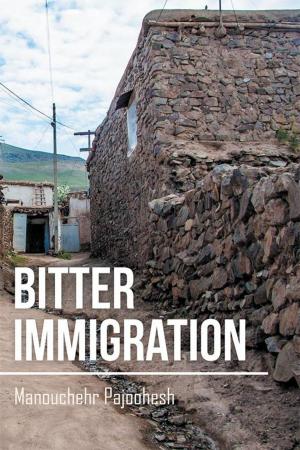The Adventure of Bai Bureh of Sierra Leone
A Tale of a Warrior
Fiction & Literature, Thrillers, Mystery & Suspense| Author: | Ibrahim Arolyn N. Koroma | ISBN: | 9781524548728 |
| Publisher: | Xlibris US | Publication: | October 6, 2016 |
| Imprint: | Xlibris US | Language: | English |
| Author: | Ibrahim Arolyn N. Koroma |
| ISBN: | 9781524548728 |
| Publisher: | Xlibris US |
| Publication: | October 6, 2016 |
| Imprint: | Xlibris US |
| Language: | English |
The adventure of Bai Bureh revealed a classic African trendsetter on a mission to conquer. He was born in a ruling house, a chief (king). He was confronted with humongous obstacles, but he was equally determined to die a king. Bai Bureh was selfless and altruistic. He was noted for his humble beginnings. At a very young age, he was perceived as timid among his peers, but he redeemed himself after he triumphantly thrashed both his high school bullies, Fenplaba (Lawbreaker) and Gbose Gbose (Violator). He was a teenager whose aim was to be the defender of not only his country of Sierra Leone but also of Africa. He set a precedent by challenging the all-powerful British Empire ruled by King Edward VII and Queen Victoria. The British role in interfering with Sierra Leoneans economic way of life in 1898 was a no-brainer, and to Bai Bureh, it was a game changer. Enough was enough. His social and natural capabilities were to complement his resiliency to lead his people during the economic and political dark ages of Africa. The legendary warrior Bai Bureh used a holistic approach to the various twentieth-century challenges faced by his country of Sierra Leone created by the dominant colonialist British Empires quest for world dominance. But he brilliantly challenged them with both a twentieth- and twenty-first-century political approach. He was well ahead of his time at the turn of century. For the legend, it was not what people think about him. It was not what his admirers say about him but what he did and how he did it. What he said and how he said it set him apart from most African warriors who trod the African stage in parallel era. His calculated political trajectory was shaped by his worldview, defined by an external threat which he perceived as a catalyst to destabilize Sierra Leoneans socioeconomic life. The British colonialist imposition of a hut tax did not settle well with the hotheaded leader. He galvanized a small but resilient Sierra Leonean populace. He and his people stood firm against the British sanctioning of a hut tax on personal dwellings on a nation where local commerce was either on its infancy stage or nonexistent. The altercation slowly but surely reached its climax in 1898, and a war ensued. Bai Bureh proved smarter in the battlefield than he was perceived capable by the superior British military might. Bai Bureh was first to introduce in battlefield the silent but lethal sniping tactics and guerilla warfare, which killed a sizeable number of British infantry soldiers by constructing camouflage trenches along the only accessible trails to the countrys interior. A rogue court filled with hateful British demagoguery sentenced Bai Bureh to a prison term. The imprisonment to slow the hotheaded Bai Burehs rebellious activities only polarized his charisma and opened new venues of leadership and supervisory positions including the British maximum prison in the Gold Coast. He returned to Sierra Leone to be lavishly showered with richly deserved homecoming welcome. He was again crowned chief (king). He was born a king, and he died a king in his hometown of Kasseh in northern Sierra Leone.
The adventure of Bai Bureh revealed a classic African trendsetter on a mission to conquer. He was born in a ruling house, a chief (king). He was confronted with humongous obstacles, but he was equally determined to die a king. Bai Bureh was selfless and altruistic. He was noted for his humble beginnings. At a very young age, he was perceived as timid among his peers, but he redeemed himself after he triumphantly thrashed both his high school bullies, Fenplaba (Lawbreaker) and Gbose Gbose (Violator). He was a teenager whose aim was to be the defender of not only his country of Sierra Leone but also of Africa. He set a precedent by challenging the all-powerful British Empire ruled by King Edward VII and Queen Victoria. The British role in interfering with Sierra Leoneans economic way of life in 1898 was a no-brainer, and to Bai Bureh, it was a game changer. Enough was enough. His social and natural capabilities were to complement his resiliency to lead his people during the economic and political dark ages of Africa. The legendary warrior Bai Bureh used a holistic approach to the various twentieth-century challenges faced by his country of Sierra Leone created by the dominant colonialist British Empires quest for world dominance. But he brilliantly challenged them with both a twentieth- and twenty-first-century political approach. He was well ahead of his time at the turn of century. For the legend, it was not what people think about him. It was not what his admirers say about him but what he did and how he did it. What he said and how he said it set him apart from most African warriors who trod the African stage in parallel era. His calculated political trajectory was shaped by his worldview, defined by an external threat which he perceived as a catalyst to destabilize Sierra Leoneans socioeconomic life. The British colonialist imposition of a hut tax did not settle well with the hotheaded leader. He galvanized a small but resilient Sierra Leonean populace. He and his people stood firm against the British sanctioning of a hut tax on personal dwellings on a nation where local commerce was either on its infancy stage or nonexistent. The altercation slowly but surely reached its climax in 1898, and a war ensued. Bai Bureh proved smarter in the battlefield than he was perceived capable by the superior British military might. Bai Bureh was first to introduce in battlefield the silent but lethal sniping tactics and guerilla warfare, which killed a sizeable number of British infantry soldiers by constructing camouflage trenches along the only accessible trails to the countrys interior. A rogue court filled with hateful British demagoguery sentenced Bai Bureh to a prison term. The imprisonment to slow the hotheaded Bai Burehs rebellious activities only polarized his charisma and opened new venues of leadership and supervisory positions including the British maximum prison in the Gold Coast. He returned to Sierra Leone to be lavishly showered with richly deserved homecoming welcome. He was again crowned chief (king). He was born a king, and he died a king in his hometown of Kasseh in northern Sierra Leone.















